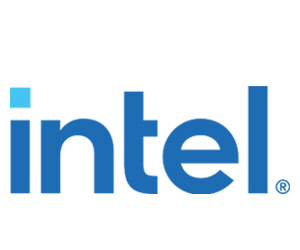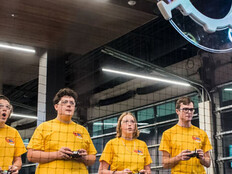Intel Inspires’ First Year Saw Big Numbers
In its first year, Intel Inspires saw 6,000 student athletes compete in esports events.
“It was primarily high school students,” says Sierra Reid, an esports program manager at Intel. “If there were students looking to transition from a two-year institution to a four-year institution, they could participate, but for the most part it was high school seniors who were making that transition to college.”
More than 200 college recruiters also registered for the event, and Intel provided a communication platform where recruiters, players and sponsors held more than 450 meetings. Along with event partners CDW and MSI, Intel gave out $250,000 in scholarships in 2020, including a mix of recruitment and honorary scholarships. For some participants, winning these scholarships was the only way they could afford to go to college.
“The scholarship recipients who were the first in their family to go to college, this was really a path forward for them,” Reid says. “It makes people realize that there is potential for esports in this love of gaming. With the incredible skills they’ve developed playing in high school or even earlier — some of these kids started in elementary school — that becomes a path to college for them.”
RELATED: Christopher Turner discusses building an esports pipeline to college and beyond.
Content Creation Plays a Big Role in 2021
Participants can expect to see even more growth at this year’s tournament. The combine and recruitment aspects of the event will remain the same. For the Fortnite, Rocket League and League of Legends athletes, qualifiers will begin in September, and the top 100 students will compete in the virtual combine. This month, however, content creators will see the beginning of an expanded creator pipeline.
“This year we’re really looking to build out that content creation side,” Reid says. “We recognize that not every student is going to be recruited into collegiate esports, but many of them still want to be involved with a team. Or maybe they’re really good at highlight reels or the different creative elements that go into esports, because it’s more than just the player; it’s a full broadcast. There are a lot of cool elements.”
The program also includes a two-day summit with collegiate and K–12 tracks. The goal is to help educators, colleges and K–12 players learn more about the industry. There will be opportunities for them to meet different partners, ask questions and network.
DIVE DEEPER: Outfit esports teams with performance in mind.
Intel’s New Mobile Processors Are Built for Esports
Intel announced more for esports athletes this year than just a second tournament. The company also debuted 11th Generation Intel Core H-series mobile processors — code-named Tiger Lake-H — on May 11.
“11th Gen H-series really brings desktop-level performance to laptops,” Reid says. “The Core i9-11980HK is the world’s best gaming laptop processor, an entire processor family that’s fantastic for enthusiasts, gamers, creators, engineering professionals or anybody who really wants that high level of performance on their laptop.”
High refresh rates, fast single-threaded core performance and 5 gigahertz of speed gives esports players a competitive edge, which is especially crucial in a tournament with other top players. And adding the speed of a desktop computer to a mobile device will benefit both high school seniors transitioning to college and high school esports teams seeking portability and flexibility in their gaming.
Brought to you by:













